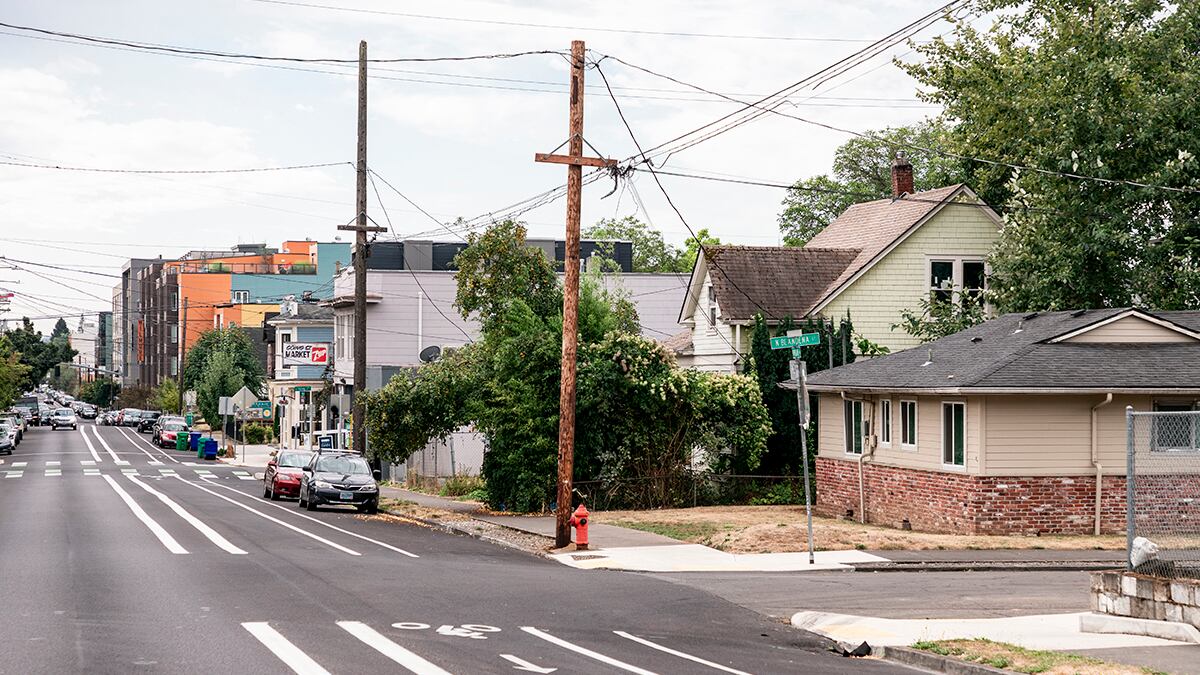On March 5, out-of-state employees of the Urban League of Portland received an unwelcome email from the social justice nonprofit that serves BIPOC Portlanders. They were told they must move back to Oregon or Southwest Washington by April 19 or “resign.”
For Urban League employee Markqula Bradley, who moved from Portland to Charlotte, N.C., with her teenage son in 2021, the 45-day deadline made her stomach drop.
“I was in shock and panic,” Bradley tells WW. “I just don’t have the money it costs to break my lease. To buy plane tickets. To ship a car. What about all the furniture in the house? I don’t even have the money for a deposit for first month’s rent. It’s just not possible.”
Julia Maria Delgado, vice president of Urban League, tells WW that the nonprofit’s five out-of-state employees “were told that they would be required to return to the office” before the official communication March 5.
“All those who moved or visited out of state were repeatedly told that remote work would be temporary, and only as conditions and policies allowed for it,” Delgado said in an email. “We are a culturally specific organization focused on a local population, and all staff require some connection to that culture and community.”
Delgado provided WW a copy of an agreement sent to all employees in September that alerted them to a new hybrid work schedule that required some time in the office. Bradley tells WW she was told by her manager, Marqueesha Ollison, that she would need to sign the agreement but that it wouldn’t affect Bradley’s ability to remain in Charlotte. So she stayed, as did other out-of-state employees.
The dispute reflects ongoing tensions over the future of remote work, especially in jobs that require delicate conversations with people in need.
Hired in February 2021 by the Urban League as a housing specialist after working for years at the Oregon Department of Human Services, Bradley asked the nonprofit later that year if she could relocate to North Carolina for family reasons.
In October, documents shared by Bradley show, the nonprofit granted Bradley permission to work 100% remotely beginning in December.
So Bradley moved to Charlotte. She’d visited North Carolina years before and said it seemed peaceful. There were also renowned historically Black colleges and universities there, a path she hoped her son would eventually take.
A year later, the Urban League promoted Bradley to lead housing specialist. A year and a half after that, it told her she must return to Portland.
Bradley asked the organization’s human resources department and Delgado about how she was expected to return in such a short time frame.
“However you were able to move out of state would be the same mechanism to move you back in most cases,” Delgado wrote March 6, “whether it’s a moving company or maybe you drive. This is a personal circumstance, and I have no idea what support you are asking for, though I have asked several times.”
Bradley says she can’t return to Portland: “There’s no way I can come back. I don’t really have a plan. I just know I need to think quickly.”
